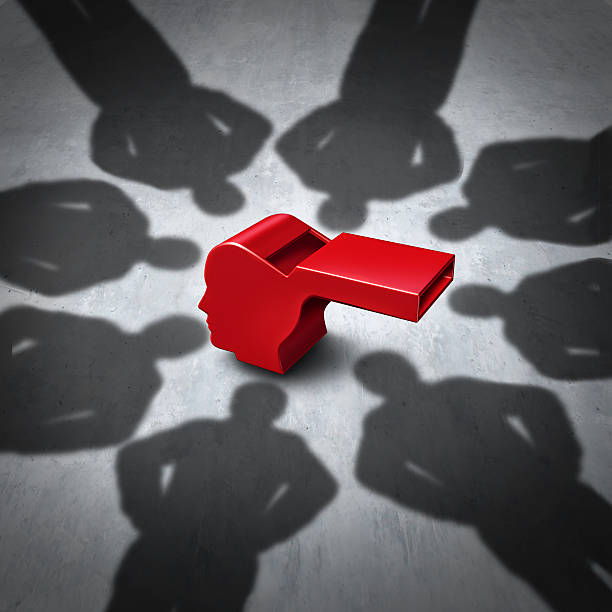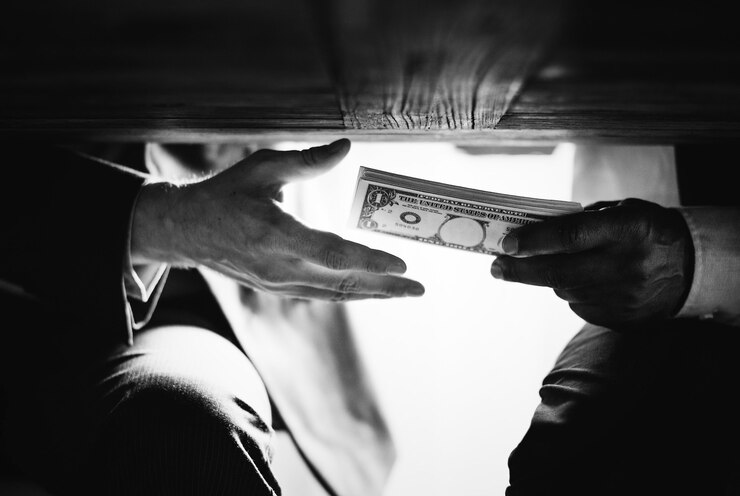The Bribery in Everyday Life: Would You Recognize It If You Saw It – And the Truth Behind Them
In the heart of Botswana, a country often lauded for its political stability and relatively low levels of corruption, the reality of bribery still lingers beneath the surface. We may not think of ourselves as being participants in corrupt activities, but bribery often creeps into our daily lives in ways we might not even recognize. Many people believe bribery only exists in the high corridors of power, within the hands of politicians or senior government officials. The truth, however, is far more complex. Bribery is not just a government issue—it’s a societal issue that manifests itself in the most ordinary, even mundane aspects of our everyday lives. The Myths We Live By One of the biggest myths about bribery is that it’s an isolated incident, a rare occurrence reserved for the shady backrooms of power. In reality, bribery is more like a virus, spreading quietly across various levels of society. In Botswana, you might think bribery is something that only happens when applying for government contracts or in dealings with law enforcement. But in truth, it shows up in far subtler, yet just as damaging, ways. ● The Myth of the Small Bribe: “It’s just a small amount to speed things up,” some might say when faced with the option of paying a bribe. The truth is, small bribes build the foundation for a larger culture of corruption. Each tiny compromise erodes the integrity of systems and institutions, making it harder for future generations to live in a fair, transparent society. ● The Myth of Necessity: There is a belief that bribery is essential for survival. In many cases, individuals feel that they are forced into making these decisions because “that’s how things are done.” But we must ask ourselves: how long can we justify this? How much more are we willing to accept before we recognize the dangers of tolerating a corrupt system? ● The Myth of Innocence: Some think that accepting or offering a bribe is harmless—“just a little help.” This mindset is pervasive. It’s easy to rationalize that “everyone does it,” and because the effects seem invisible in the short term, it feels inconsequential. But when corruption becomes normalized, it seeps into every institution, stifling progress and draining resources from those who need them most. The Truth Behind Bribery in Botswana Bribery in Botswana is not an abstract concept; it’s a reality that affects the day-to-day lives of ordinary citizens. It might show up when you’re trying to get your paperwork processed faster, or when you’re negotiating a deal in a business context. It could even happen when a police officer stops you for a minor traffic violation, and you’re offered a shortcut to avoid fines. In some areas, bribery can feel like a way of life. After all, when a person feels that waiting in long queues or dealing with a slow bureaucracy is the norm, the idea of a bribe to expedite the process can seem harmless, even necessary. But what we fail to realize is that every time we engage in this behavior, we perpetuate a cycle that prevents our systems from improving. The damage caused by bribery is not limited to financial loss. It leads to inefficient systems, waste, and misallocation of resources. It discourages innovation, stifles competition, and hinders the creation of new opportunities. In a country like Botswana, which has the potential for sustainable growth and development, corruption could easily derail the progress that’s been made. Recognizing Bribery – And Its Impact The first step in breaking this cycle is to recognize bribery for what it is: an obstacle to progress. It might seem small at first, but the cumulative effect is devastating. Bribery limits opportunities for those who can’t afford to pay, deepens inequality, and diminishes trust in public and private institutions. In a world that is rapidly changing, we can no longer afford to allow bribery to thrive. It creates a culture where people no longer trust their leaders or each other, and where justice becomes a privilege reserved for the highest bidder, not the deserving. The moment we begin to recognize bribery in all its forms—whether it’s the casual offer of money or the hidden costs of injustice—we open the door for change. The Opportunities That Lay Ahead The most powerful change comes when individuals—at every level of society—decide enough is enough. This isn’t about finger-pointing or blaming anyone in particular; it’s about an entire society coming together and deciding to build a future that’s more equitable, just, and transparent. For Botswana, the opportunities are vast. A commitment to eradicating bribery and corruption can unlock the full potential of its people and institutions. It can pave the way for sustainable development, attract foreign investment, and provide better services for all citizens. But it requires a collective shift in mindset. If we want to see a future where progress is not impeded by corruption, we must act. It means taking a stand when we’re asked to pay a bribe, speaking out when we see it happening, and supporting leaders who are committed to transparency and fairness. It means raising a generation that believes in doing what is right, not what is easy. Hope for the Future While this may seem like a daunting challenge, it is one that holds hope. In recent years, Botswana has made significant strides in improving governance and fighting corruption. Transparency International’s Corruption Perceptions Index ranks Botswana highly compared to many African countries, and there is a growing awareness about the importance of integrity in the public and private sectors. If we can continue to build on these efforts, we can create a future where bribery is not just rare—it is unthinkable. We can create a country where every individual, regardless of their background, has equal access to opportunities and justice. We can create a Botswana that leads by example, a beacon of hope for the rest of Africa and the world. Conclusion: Changing the Narrative The narrative surrounding bribery doesn’t have to be




